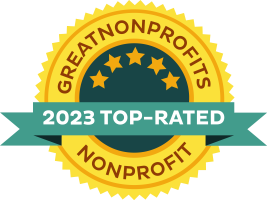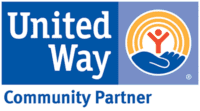
Last July, I wrote a blog about House Bill 4 (HB4) – a well-intentioned grant program aimed at improving Texas’ pre-K education. To give a re-cap: Gov. Greg Abbott signed HB4 into law this past May, and intended for $130 million to be awarded over the next two years to school districts who meet certain criteria such as utilizing a state approved pre-K curriculum and using teachers who meet certification requirements. Districts who meet the bill’s requirement were eligible to receive up to $1,500 per child.
Fast forward to today.
Because so many schools sought and were awarded funding, districts are receiving less than half of the funding originally designated per-student – about $730. As a result, half-day public pre-K options many Texas ISD’s currently offer cannot expand or meet the needs of our children, leaving Texas’ program rating as ‘low’ according to the National Institute for Early Education Research. Recognizing this deficiency, some districts declined funding after being offered insufficient amounts to support quality pre-K.
What began with good intentions ended in lackluster support for one of the greatest opportunities we have as a state to impact the economy, health and safety of our communities.
Just as we have started to gain community buy-in in the significant role quality early childhood education plays, we underfund public pre-K, risking a reduction or even elimination in the swelling belief in the value of early education. Why? Because under-resourced pre-K programs are likely to suffer in terms of quality. Research tells us that mediocre child care experiences do not yield positive results. If we want high quality outcomes, we must invest in high quality early education experiences—which doesn’t occur unless we fund the specific things we know based on research make for a quality experience: full-day pre-K with low child/teacher ratios and quality teachers who receive continued purposeful professional development enabling them to cultivate young minds. We can kiss that seven-to-ten-dollar ROI that we’ve impressed the community with goodbye if we continue to give full lip-service and partial resources to early education. We are setting ourselves up for failure—and a heavy “early childhood matters” bolder to push uphill after our well-intentioned, but half-hearted efforts fail to impress.
Until there is another legislative session that is open to circling back to fully funding pre-K, we are in a position as a community to try to figure out what to do to make sure our children are receiving the education they deserve. Because in every community there are scores of 4-year old’s about to excitedly jump into what is likely to be their ONLY pre-K experience. Some options include:
- Ensure that parents have the knowledge they need to support their child’s brain growth and development. It’s not all up to the teacher. A child’s success is the parents and teachers working together to make sure their child is ready for school. Families need to be engaged in their child’s education from the time they are born.
- ISDs that can find the resources can braid funding to ensure enough funding to support quality pre-K. FWISD implemented pre-K open to all children a couple of years ago. The HB4 funds received help to supplement and improve a growing system. Some of these funds, for example, are being used to offer before and after school services for some pre-K children, whose school day ends at 2:10 p.m. It’s a good start in responding to the need for aligned, quality early experiences.
- Preparing for kindergarten doesn’t begin at age four. 85% of the brain is developed between 0-3, making these critical years. Child care facilities should enter into rigorous training programs aimed at helping their children become school ready that focus on child brain development, social-emotional skills and early literacy and math concepts. Since 2005, Camp Fire has implemented a comprehensive, research-based professional development system designed to improve the school readiness of Fort Worth ISD children. Research-based assessment tools are used to measure teacher and child outcomes. Through that work we’ve learned that when you compare Camp Fire School Readiness participants to a peer group, Camp Fire kids fare better through the first few years of school.
Don’t judge the success of pre-K based on the current state plan.
 Lyn Lucas is the Chief Program Officer at Camp Fire First Texas. Her specialties include working with children in both the non-profit and for-profit sectors, managing school-age programs and NAEYC-accredited early childhood education programs. Lyn holds a Master of Education in curriculum studies and serves on the Texas Youth and Child Care Worker Association board.
Lyn Lucas is the Chief Program Officer at Camp Fire First Texas. Her specialties include working with children in both the non-profit and for-profit sectors, managing school-age programs and NAEYC-accredited early childhood education programs. Lyn holds a Master of Education in curriculum studies and serves on the Texas Youth and Child Care Worker Association board.






